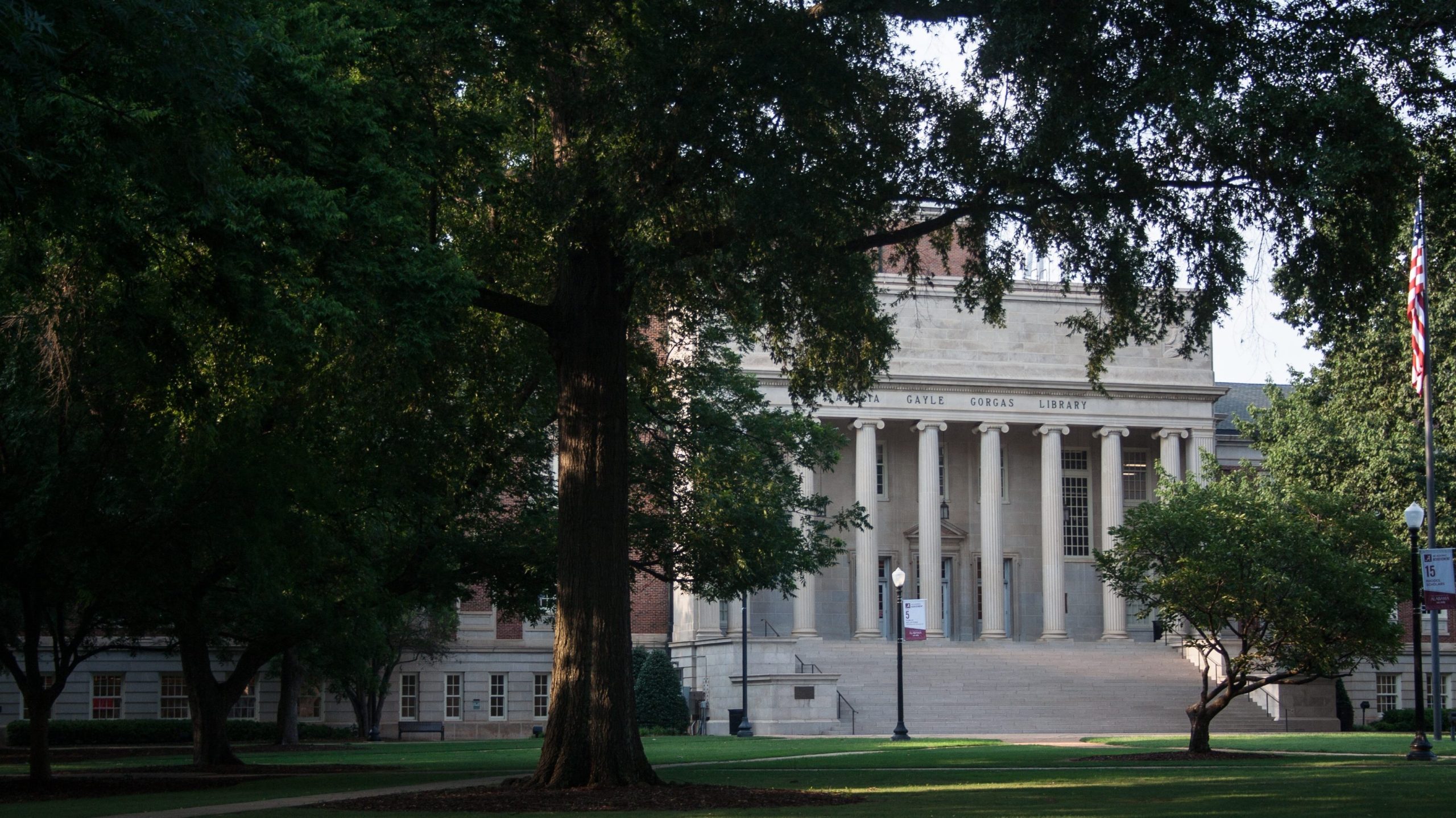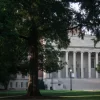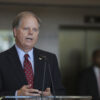You might forgive Pastor Rodney Keister for being a little angry at the University of Alabama.
“There’s so much dishonesty in the whole case,” said Keister, a Pennsylvania-based minister, as he was driving to pick up a paper cutter he found on Facebook to use in his evangelism. “It’s just unreal the things that they say you’re permitted to do, and yet I’ve got them on video camera denying being able to do it.”
For six years, Keister has been traveling the country in his ministry while also fighting the university, ever since March 10, 2016, when he was preaching near the Quad and asked to move first to the corner of University Boulevard and Hackberry Lane (a sidewalk he was told that was owned by the city and therefore exempt from UA regulations) and then off-campus entirely, lest he be arrested for trespassing.
For six years, he’s gone from the federal trial court to the 11th Circuit Court of Appeals and back in his quest to have his First Amendment rights vindicated in his challenge to the university’s grounds use policy, a regulatory scheme that requires speakers to seek UA’s permission for speech activities so nominal that even someone trying to stand on a corner of the Quad to pass out flyers must get prior approval.
For six years, Keister’s argued for the right to preach for his god where he sees fit and for the First Amendment.
“I’m a true patriot,” Keister said, “so I believe in our constitutional rights, and I firmly believe that if we do not stand for them, we will lose them.”
His latest legal skirmish, however, might be the end of his war against UA after the 11th Circuit in March upheld a district court decision that found that the ownership of the sidewalk was immaterial and that the answer to the real question at the core of the case – the fundamental purpose and character of the sidewalk – favored the university.
The case turned on the issue of “forum analysis,” the Supreme Court doctrine that categorizes government property into one of four classifications: traditional public forums, designated public forums, limited public forums and nonpublic forums. The specific category here is important as different rules govern depending on the situation; for the government to regulate speech in a traditional public forum – a category that encompasses classic areas for free speech like public parks and, importantly, sidewalks – it must pass the demanding “strict scrutiny” standard for government interventions, whereas regulations in a limited public forum need only be viewpoint neutral (meaning they can’t discriminate against the specific views being expressed by speakers) and “reasonable.” Limited public forums, as the 11th Circuit explained, are places where certain people or certain topics can be rightly excluded depending on the reasoning behind the government’s establishment of the property in question.
It was this more restrictive category, the limited public forum, and not the one more favorable for speech (traditional public forum) into which the court placed the sidewalk at University and Hackberry. In doing so, the court looked to both its own case law – including a similar case in which it concluded a Georgia State University sidewalk was a limited public forum – and Supreme Court precedent to make the determination. Courts must frequently reason by analogy – it’s one reason for respecting and developing precedent, after all – but the 11th Circuit made two critical errors in pointing to previous Supreme Court decisions in U.S. v. Kokinda and Greer v. Spock. In Kokinda, the Court found that a post office sidewalk was not a traditional public forum because it was built primarily to shuttle USPS customers from the parking lot to the location’s front door, and in Greer, the Court concluded that streets and sidewalks did not turn a military base into a traditional public forum.
Reliance on both cases feels fundamentally wrong as applied to the University of Alabama. On that day in March 2016, Keister was not blocking some narrow path exclusively designed to shuttle students from one point to another; rather, he was standing in a bustling academic city-state with sidewalks and footpaths spidering in any number of directions. And do we really want to suggest that college administrators should have the same sort of control over their campuses as military commanders have over their installations? The 11th Circuit seemed to embrace this suggestion as it noted that military brass could rightly decline speakers and literature on base that might “be a danger to the loyalty, discipline or morale” of those on base but not speech that would be “even unfairly critical of government policies or officials.” If the three-judge panel that decided Keister’s case reasonably believes that college administrators can consistently navigate that line in a principled manner, then I am convinced they’ve never met someone who works in higher education.
Because the sidewalk was created to facilitate the educational mission of the university, because the location bears the adornments of a college campus and not the city at large and because the university maintains functional control of the property, the court concluded, it doesn’t matter that the city might technically own it. Just like it doesn’t matter that anyone can freely come to campus, drive on University Boulevard or lay on the Quad under the sun – the university still gets to enforce its permitting policy.
Even granting the university’s point that the corner should be treated as a specially regulated corridor, it’s astounding to see the grounds use permit policy upheld as reasonable as applied to Keister. What reasonableness is there in requiring an individual who seeks to merely stand on a corner, talk to students and pass out literature to get permission under the guise that they might expend some finite university resource? As the 11th Circuit rightly pointed out, content-neutral time, place and manner restrictions are needed when something like a scheduling conflict arises: “The university,” the court wrote, “could deny an application if the proposed location were unavailable at the time requested or if the event would interfere with regular academic and student activities.”
But neither of those conditions apply to Keister, nor was he seeking to hold a parade or other type of demonstration that would – under the plain English meaning of the term – use the university’s grounds in any meaningful way. And if he should seek a permit only because his speech might cause some unfortunate reaction, then that’s merely the state giving power to the heckler’s veto, an outcome that should never be tolerated in a free society.
Keister will likely not return to the University of Alabama, choosing instead to continue his ministry in the 47 other contiguous states where he has preached and never received the government’s permission to spread the word.
“I don’t use a permit,” Keister said. “If I have to get a permit to do free speech, it’s no longer free speech. That’s exactly the way I look at it. Why do I need a permit to exercise free speech?”
Pastor Rodney Keister is a man of god.
But he might as well be a man of the law.



















































